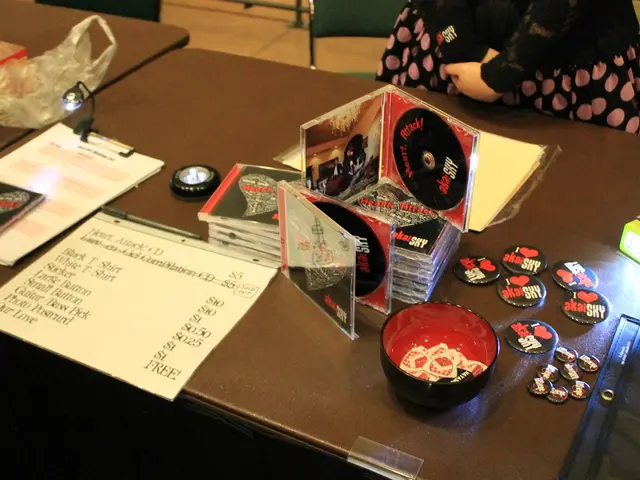Restricted exports of TSMC's semiconductor manufacturing equipment directed towards China by the US
In a significant development, the U.S. government has revoked TSMC's authorization to export U.S. chipmaking equipment to China, a move that is expected to impact the predictability of TSMC Nanjing's future operations.
The revocation affects TSMC's operations in Nanjing, China, where the company has a significant presence. TSMC, the world's largest contract maker of chips, counts Nvidia and Apple among its clients, and its chips are used in various products, including smartphones, missiles, and other electronics.
The U.S. Commerce Department has ended the "validated end-user" (VEU) program, a decision that further restricts access to U.S. technology in China. According to new rules, foreign chip manufacturers such as SK Hynix and Samsung that want to expand or upgrade their chip production facilities in China must now obtain an individual export license from the U.S. for each piece of equipment ordered.
However, such licenses for capacity expansions or technology upgrades are unlikely to be granted, effectively limiting the possibility of exporting to these companies for facility expansion or modernization in China. The Bureau plans to grant licenses to allow businesses to run existing China-based plants but not for expanding capacity or upgrading technology.
TSMC remains committed to ensuring the uninterrupted operation of TSMC Nanjing. The company is taking appropriate measures and communicating with the U.S. government regarding the revocation. The VEU authorization for TSMC Nanjing will be revoked effective December 31, 2025, providing the company with some time to adjust its operations.
The U.S. move is significant as TSMC's Nanjing plant accounts for around three percent of TSMC's total production capacity and "even lower" of Taiwan's overall chip production. This decision could potentially disrupt the supply chain for TSMC's clients and impact the global electronics industry.
The Commerce Department's Bureau of Industry and Security will allow former VEU participants 120 days after the new rule is published to apply for export licenses, offering a glimmer of hope for companies like TSMC to find a solution to continue their operations in China.
Read also:
- Understanding Hemorrhagic Gastroenteritis: Key Facts
- Trump's Policies: Tariffs, AI, Surveillance, and Possible Martial Law
- Expanded Community Health Involvement by CK Birla Hospitals, Jaipur, Maintained Through Consistent Outreach Programs Across Rajasthan
- Abdominal Fat Accumulation: Causes and Strategies for Reduction







